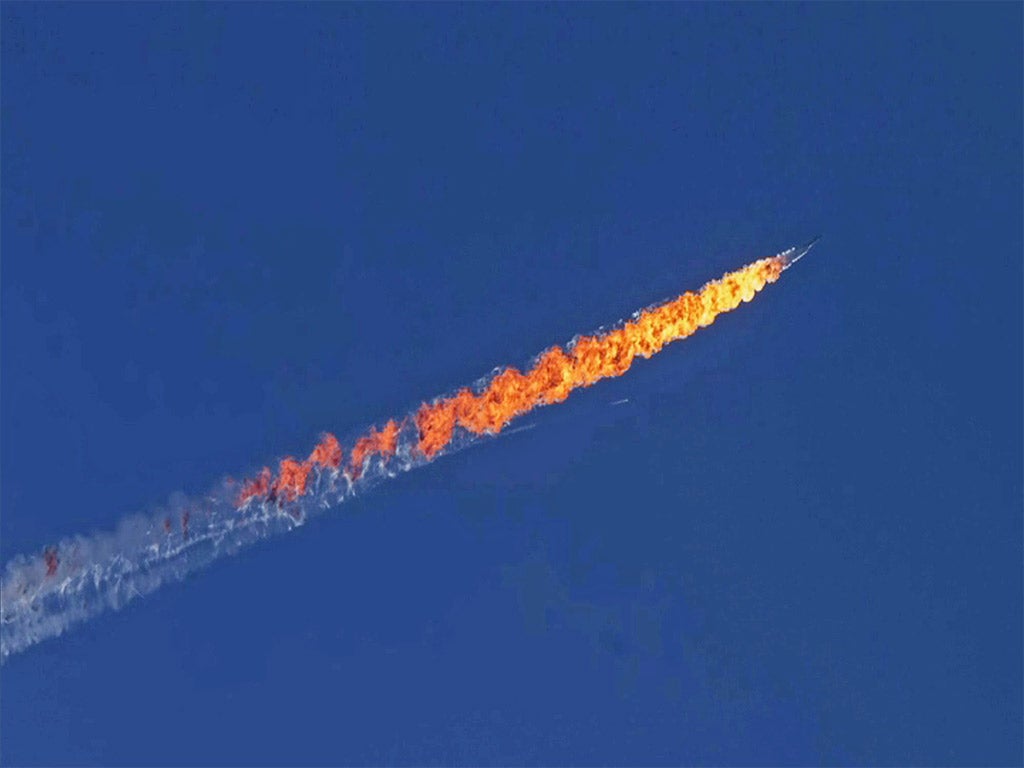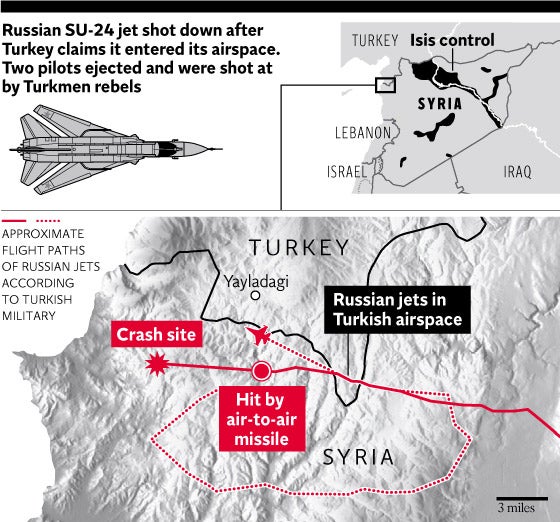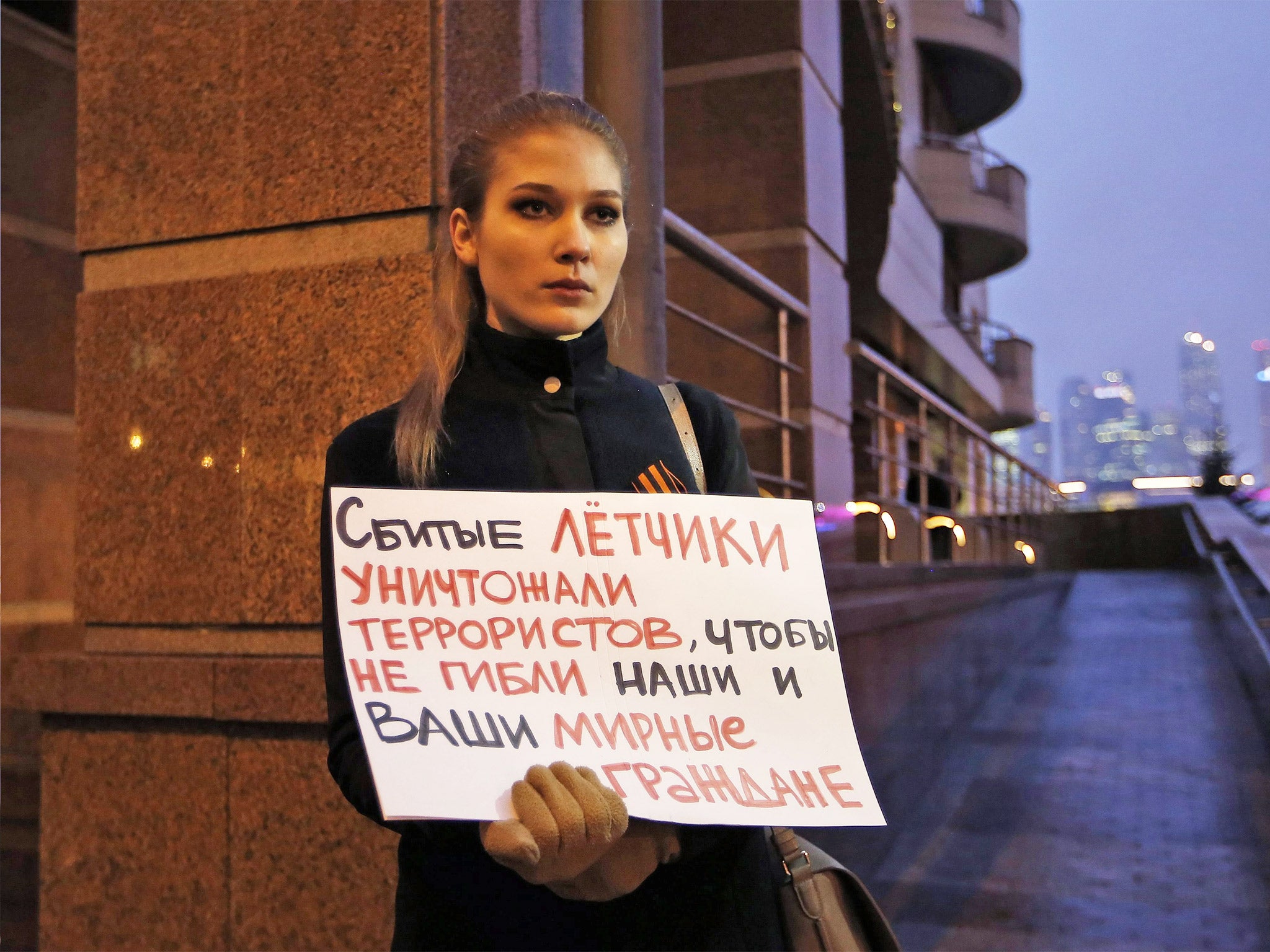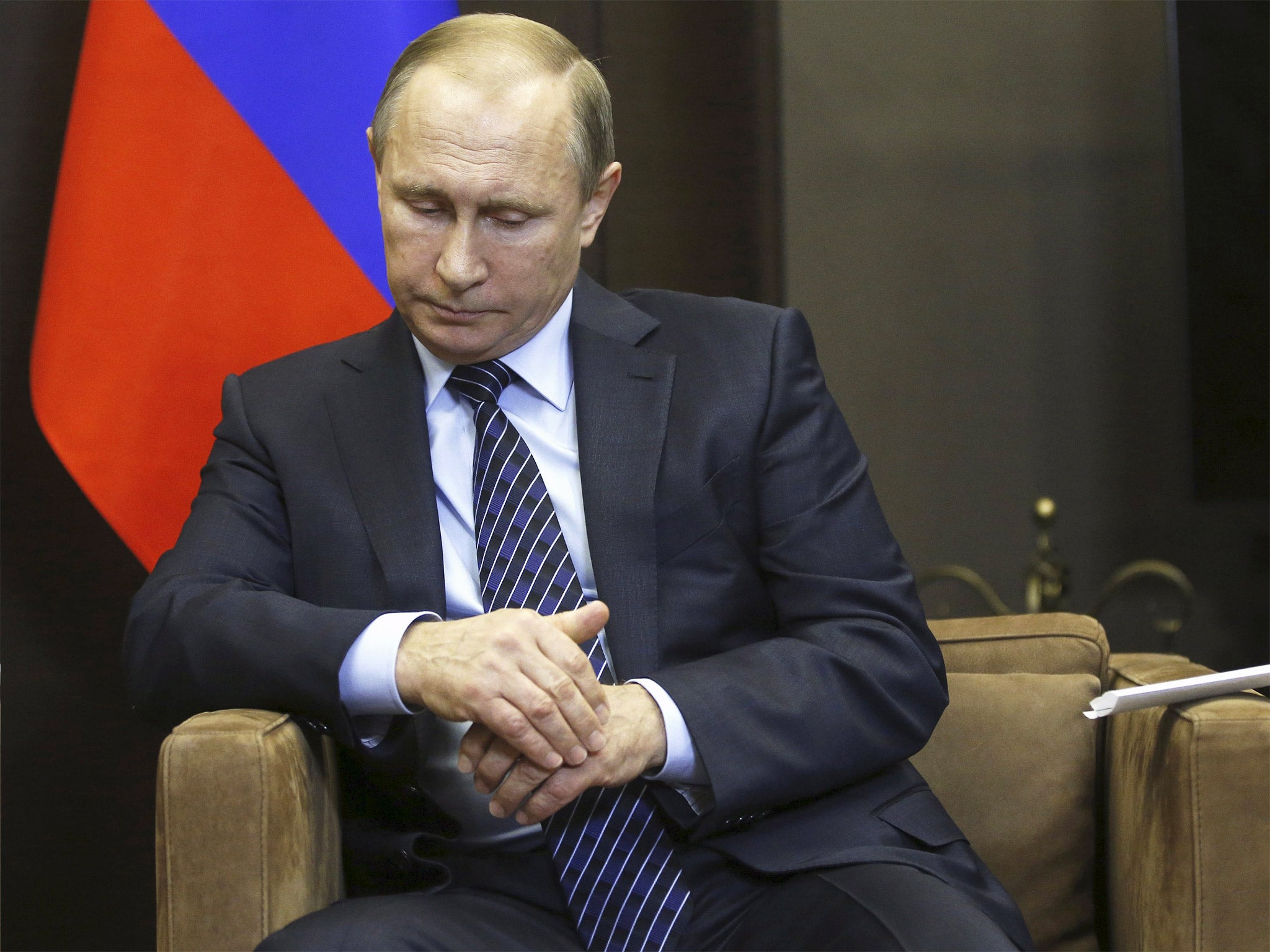Turkey shoots down Russian jet: War of words rages on as Nato convenes emergency meeting in Brussels
President Vladimir Putin branded Turkey 'accomplices of terrorists' and warned of 'serious consequences'

Nato has been plunged into crisis after Turkey became the first alliance member to shoot down a Russian military plane in more than half a century.
President Vladimir Putin branded Turkey “accomplices of terrorists” and warned of “serious consequences” after the Turkish military downed a Russian Su-24 fighter jet accused of violating its air space during an operation in northern Syria.
Both the United States and Nato urged calm after a war of words erupted between Turkey and Russia, who are on opposing sides of Syria’s spiralling conflict.
Russia summoned the Turkish military attache in Moscow and Ankara called in Moscow’s chargé d’affaires. The Russian Foreign Minister, Sergei Lavrov, cancelled a trip to Turkey that had been planned for 25 November.
Speaking in Washington as Nato convened an emergency meeting in Brussels, the US President, Barack Obama, said that Turkey “has a right to defend its territory and its airspace” but urged both sides to be cool-headed.
Video: Russian jet shot down by Turkey
“My top priority is going to be to ensure that this does not escalate,” Mr Obama said at a White House news conference alongside France’s President, François Hollande.
The Nato chief, Jens Stoltenberg, said the alliance stood in solidarity with Turkey, but added: “Diplomacy and de-escalation are important to resolve this situation.”
Ankara and Moscow gave conflicting accounts of the sequence that led to the first acknowledged downing of a Russian jet by a Nato member since the Korean war in the 1950s.

Turkey said it issued 10 warnings in a five-minute period to two Russian Su-24 aircraft at about 9.20am local time. It claimed one left Turkish airspace over the southern province of Hatay but the second did not respond, prompting Turkish F-16 jets to fire air-to-air missiles.
The Turkish Prime Minister, Ahmet Davutoglu, said Turkey had the right “to take all kinds of measures” against violations of its borders.
Mr Putin said the plane had been shot down over Syrian airspace and landed 4km from the Turkish border, adding that it was “obvious” that the craft posed no threat.
The Russian President said pilots had simply been carrying out their mission of fighting Isis inside Syria and described the Turkish attack as a “stab in the back”. In a further barb, he suggested that the Turks were protecting Isis fighters from attacks by Russia, asking: “Do they want to make Nato serve Isis?”
Video: Putin on downed jet

The US military backed up Turkey’s claim that it issued 10 warnings with no response, but a spokesman said that it needed “a little time” to confirm whether the Russian jet had crossed the border into Turkish airspace. Nato appears to back Turkey’s account.
A video released by Turkey’s privately owned Haberturk news agency showed the moment the jet was shot. The plane could be seen bursting into flames before plunging into a forested mountain. Further footage showed two pilots parachuting out of the plane, but their fate remains unclear.
Opposition fighters initially said they had killed one pilot and were searching for the second. Turkey’s private Dogan news agency later quoted Alpaslan Celik, commander of a brigade of fighters from the Turkmen ethnic group, as saying that Syrian rebels had shot and killed both men, an act that would be a breach of the Geneva Convention.
A Turkish official told the AFP news agency that the two pilots were alive and that Turkey was seeking to secure their safety.

In a further blow to Russia, the country’s military said that a helicopter sent to search for the crew of a shot-down warplane in Syria was attacked by rebel fire and one serviceman was killed. The rest of the crew were evacuated and returned to the country’s air base in Syria.
Russia has long been a close ally of Damascus, providing both military and diplomatic support. But its decision in September to launch air strikes in Syria’s already crowded skies prompted warnings that it risked coming into close contact with Nato rivals.
Turkey, which remains staunchly opposed to President Bashar al-Assad, had previously protested over violation of its airspace by Russian jets, forcing Nato to issue a warning in October.
Ankara has grown increasingly alarmed by Russian support for a Syrian government campaign against ethnic Turkmen in the north-west of Syria, near where the plane came down. Turkey has provided military support to brigades of Turkmen, who have ethnic and linguistic ties to Turkey as well as a shared hostility to President Assad.

Strong economic ties have previously helped Mr Putin and Turkey’s President, Recep Tayyip Erdogan, to at least partially overlook their differences on Syria. Turkey buys more Russian natural gas than any other European country, while almost 4.5 million Russian went on holiday in Turkey last year.
Mr Putin is likely to face strong domestic pressure to seek retribution for the incident, although military analysts said he was likely to target Turkish allies on Syrian soil rather than Turkey itself.
The United States is keen to distance itself from the fallout from the attack. The White House will be reluctant to jeopardise a new round of peace talks on the Syria conflict that have made modest progress after years of deadlock, as well as hopes of a newfound international resolve to tackle Isis after attacks by the group in France and Turkey and against a Russian passenger jet.
Mr Obama and France’s President François Hollande agreed to expand their military operations in Syria and Iraq in an effort to reclaim territory currently in the hands of Isis. The two leaders also called on Russia to end operations that targeted forces opposed to Mr Assad.
A state of emergency has also been declared in the Tunisian capital, Tunis, after at least 12 people were killed in an explosion on a bus carrying Tunisian presidential guards.
Join our commenting forum
Join thought-provoking conversations, follow other Independent readers and see their replies
Comments